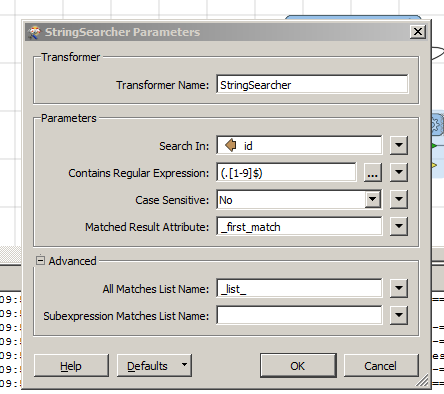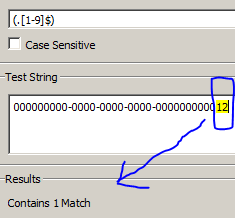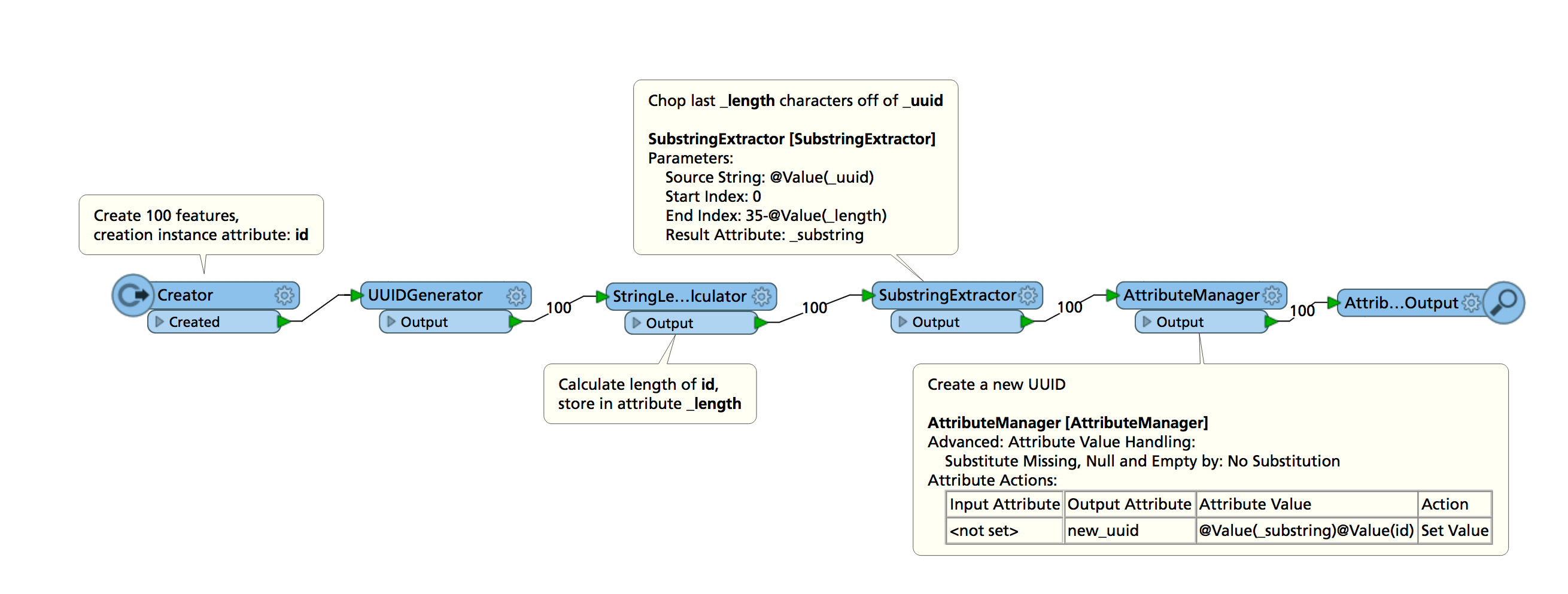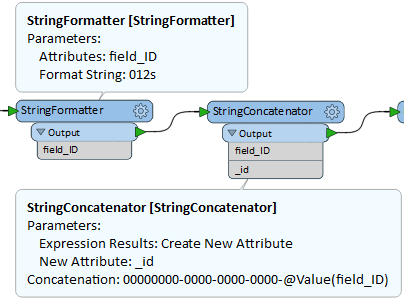Hi All,
I have a data in GDB with some field ID and i want to generate UUID for this in specific format.
for this i have used UUID generator but results are not as per my retirements.i.e 32 digit with dash in between eg.
I want Entity_ID in such format : 000000000-0000-0000-0000-000000000012.
last digit should be from Field ID field.
I am not sure which transformer i can use to do this can some body guide me on this ?














